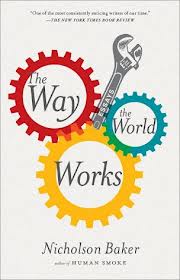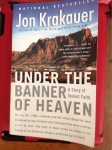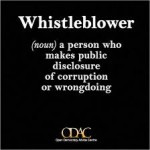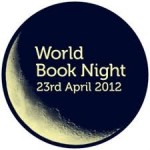 Kyle and I took the bus to Bryant Park yesterday to hear singer, musician and novelist Suzzy Roche* lead a discussion of Edith Wharton’s House of Mirth in the Park’s long-running Reading Room series. We arrived just in time to corral two chairs near the front of the outdoor space and settled in as Suzzy was tuning her guitar for what would later be an original song to close the program. Suzzy began by sharing some notes and interesting facts she had learned about Wharton.
Kyle and I took the bus to Bryant Park yesterday to hear singer, musician and novelist Suzzy Roche* lead a discussion of Edith Wharton’s House of Mirth in the Park’s long-running Reading Room series. We arrived just in time to corral two chairs near the front of the outdoor space and settled in as Suzzy was tuning her guitar for what would later be an original song to close the program. Suzzy began by sharing some notes and interesting facts she had learned about Wharton.
She said that 2012 marks the 150th year since Wharton’s birth in to a wealthy family in New York City. The family name was Jones, and some believe their conspicuous upper-class status may be the origin of the phrase “keeping up with the Joneses.” Early on, Edith’s mother forbade her from reading novels, lest her daughter’s intellect expand in ways that would make it harder to ensure a proper marriage for her. Suzzy reminded everyone how fitting it was to be in Bryant Park with a view of the main branch of the New York Public Library, since the novel we were discussing includes a scene set in the lovely park. From her youthful days, Wharton exhibited a high degree of sensitivity, and Suzzy read a quote she found in Wharton’s autobiography: “The owning of my first dog woke in me the long ache of pity for animals and for all inarticulate beings which nothing has ever stilled.”
Wharton’s first full-length piece of fiction, a novella finished at age 18, was accompanied by several passages of self-criticism where she assessed what she judged to be the weaknesses of her own work. Suzzy quoted this early comment of Wharton’s on the subject of criticism: “After all, one knows one’s weak points so well it’s rather bewildering to have the critics overlook them and invent others.”
With these details of Wharton’s life in our minds, Suzzy turned the discussion to the novel itself. After reviewing contemporary critical reaction to the book, which often emphasized Wharton’s gender, she asked “Does this book have something to say to us right now about the place of women and money in society? She pointed out that just this year, Jonathan Franzen ignited a controversy when he wrote in the New Yorker about “Edith Wharton’s looks.” Suzzy continued that Franzen wrote “it was hard for him to warm to her novels because she had every advantage of wealth and privilege and was extremely socially conservative. But, he said, ‘she did have one potentially redeeming disadvantage: she wasn’t pretty.’ On the surface, there would seem to be no reason for a reader to sympathize with Lilly; she’s profoundly self-involved and incapable of true charity. She pridefully contrasts other women’s looks with her own. She has no intellectual life to speak of. She’s put off from pursuing her one kindred spirit because of the modesty of his income. She’s basically the worst sort of party girl, and like Wharton, she didn’t even try to be charming.” There was a gasp among the Bryant Park crowd as Suzzy read the remarks of the award-winning novelist, which whether said about Wharton or Lily Bart, struck many of us as chauvinistic. Please click through for rest of post and all photos
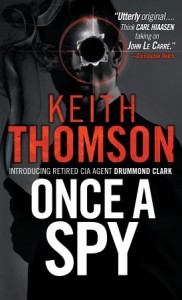 #FridayReads, Aug. 24–Keith Thomson’s Once a Spy, an entertaining wise-cracking urban crime novel blended with an espionage yarn. Narrator Charlie Clark–an NYC cab driver and regular denizen of Aqueduct Racetrack–discovers that his father Drummond is suffering with Alzheimer’s disease. What Charlie doesn’t know, at least until the story begins unfolding, is that Drummond, who ran an appliance store, operated the store as a CIA cover; in fact, he spent decades working undercover for the agency. Thing is, even with Drummond’s diminished memory, he still possesses a trove of secrets that agency bigwigs fear could end up in the wrong hands. It’s an intriguing premise, one I’ve never encountered before.
#FridayReads, Aug. 24–Keith Thomson’s Once a Spy, an entertaining wise-cracking urban crime novel blended with an espionage yarn. Narrator Charlie Clark–an NYC cab driver and regular denizen of Aqueduct Racetrack–discovers that his father Drummond is suffering with Alzheimer’s disease. What Charlie doesn’t know, at least until the story begins unfolding, is that Drummond, who ran an appliance store, operated the store as a CIA cover; in fact, he spent decades working undercover for the agency. Thing is, even with Drummond’s diminished memory, he still possesses a trove of secrets that agency bigwigs fear could end up in the wrong hands. It’s an intriguing premise, one I’ve never encountered before.


